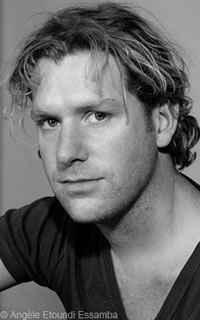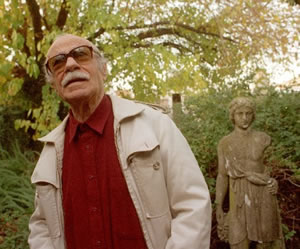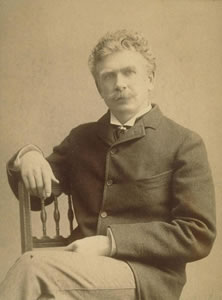De Nederlandse schrijver en televisiemaker Matthijs Leonard Kleyn werd geboren in Leiden op 24 juni 1979. Kleyn was aanvankelijk achter de schermen actief als televisiemaker. Hij bedacht onderwerpen voor verschillende programma’s, schreef teksten voor voice-overs en presentatoren en groeide uit tot verslaggever en regisseur. Hij werkte voor programma’s als Hart van Nederland, In de hoofdrol en RTL Boulevard. Ook schreef Kleyn een wekelijkse column voor de website van RTL Boulevard. In 2006 vertrok Kleyn met filmproducent Rob Houwer naar Tsjechië om een documentaire te maken over de totstandkoming van Het woeden der gehele wereld, de verfilming van het boek van Maarten ’t Hart. In 2011 werkte Kleyn bij BNN samen met Paul de Leeuw en Filemon Wesselink voor de MaDiWoDoVrijdagshow. In maart 2011 trad hij in dienst bij De Wereld Draait Door, waar hij werd geïntroduceerd als Jakhals Thijs. In mei 2011 verscheen Kleyns debuutroman Vita. Vita is een deels autobiografische roman die handelt over depressie en zelfmoord. Op 8 juni 2011 was Vita de hoogste binnenkomer in De Bestseller 60 van het CPNB.
Uit: Vita
„Al een uur sta ik in haar straat. Ik heb Vita nu al twee weken niet normaal gezien of gesproken, alleen een vluchtige blik op de redactie en een afhaaksms ’s avonds. Vandaag was het niet anders. Zodra
het donker werd, ben ik richting haar huis op de Govert Flinck gelopen.
Vanaf de stoep aan de overkant ben ik te ver weg om direct op te vallen, maar dichtbij genoeg om snel bij de voordeur te komen als die opengaat. Dan zal ik aan komen rennen en met een van Vita’s medebewoners het pand betreden met de smoes dat ik haar vriendje ben. Of het echt een smoes is, weet ik allang niet meer.
De deur gaat open en een vrouw met bruine krullen en een bril verlaat het pand. Ik trek een sprintje en kan nog net met m’n schouder de deur openhouden. De vrouw kijkt niet eens om, blijkbaar rennen er vaker vreemde mannen naar binnen. Met bonzend hart bestijg ik de drie trappen. Als ik voor haar deur uitkom, hoor ik vrouwenstemmen. Geconcentreerd luister ik. De vrouwen praten op hysterische toon in het Engels, maar met een Amerikaans accent. Zachtjes leg ik een hand op de deurklink en duw die naar beneden. Met succes. De kamer is verlicht door de felle kleuren van de tv, verder brandt er geen licht. Vita zit als een schim op haar bed naar de tv te staren. Ze heeft haar jas nog aan. Doordat de tv zo hard staat, heeft ze me niet in de gaten.
‘Lie!e,’ zeg ik.
Sloom draait ze haar hoofd naar me toe. Ze schrikt niet en oogt ook niet verbaasd.
‘Hé boef.’
Ik glimlach en loop naar haar toe. Vita blijft zitten waar ze zit. Ik kniel naast haar neer.
‘Gaat het wel?’ vraag ik zacht.
Ze antwoordt niet, maar geeft me een kus op m’n mond. Ze maakt geen aanstalten om de tv uit of zachter te zetten. Ze draait haar hoofd weer naar het scherm en kijkt verder. Ik volg haar ogen. America’s Next Topmodel is te zien, ik herken de donkere presentatrice die een huilende kandidate afbekt.“

Matthijs Kleyn (Leiden, 24 juni 1979)


